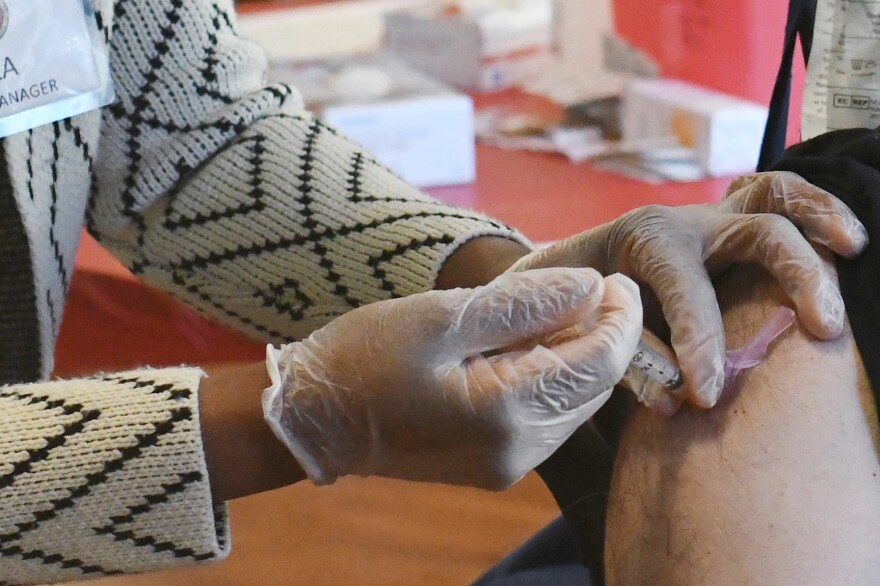In another sign the pandemic is starting to end, people at hundreds of residential care facilities across Colorado no longer have to wear masks. The caveat is the same as the one for the general public: the rule applies only to those who are vaccinated.
That includes residents, workers and visitors at roughly 750 assisted living centers, group homes and similar facilities.
“Combined with the high vaccination rates of residents in these facilities, (the Colorado Department of Public Health and Environment) felt comfortable loosening the restrictions,” said Peter Myers, a spokesperson for the department.
Masks, Myers said, are still required regardless of vaccination status in nursing homes around the state because they must follow stricter federal guidelines. Myers cited recent guidance from the federal Centers for Disease Control and Prevention that allow fully vaccinated people to forego masks and physical distancing in most situations.
More than 100 nursing, assisted living and similar facilities have what are considered to be active outbreaks involving 212 residents. However, for the week ending June 1, state officials tracked 20 new outbreaks in facilities and no deaths.
And of all active, or ongoing, outbreaks, there have been four deaths at one assisted living center and two more at two nursing homes, according to state data analyzed by KUNC. All those who lost their lives were residents. By contrast, in mid-November, there were 185 deaths in nursing, assisted living and combined care facilities with active outbreaks.
Myers said vaccines appear to be reducing outbreaks and the number of people involved in them.
About 90% of residents at facilities are vaccinated, he said. Yet about 35% of the workers who care for those residents have decided against vaccination, causing ongoing concern among advocates for residents.
According to state data, more workers are infected with COVID-19 in active outbreaks -- 406 of them.
State health officials are pushing to increase the number of vaccinated workers. As of June 14, the state will require that facilities create COVID-19 mitigation plans that promote “vaccine confidence and acceptance.” Under the plans, facilities must demonstrate how they will continue to offer vaccines, particularly to new residents and workers, and must track their vaccination status.
Bob Murphy, director of Colorado’s AARP chapter, acknowledged progress has been made in calming a deadly pandemic that has run rampant through facilities that care for older and health-compromised Coloradans, but said the outbreaks have him remaining cautious.
“It has gone down since the spikes of last year and, indeed, even January of this year in terms of sheer numbers,” Murphy said. “But still they occur, and that is troubling.”
Murphy supports the state’s guidance that vaccinated people can skip masks in facilities that don’t have active outbreaks.
“That seems reasonable if you, as a visitor, a worker or a resident are fully vaccinated and in theory are largely protected against contracting the virus,” he said. “At some point reason has to prevail.”
Doug Farmer, the CEO and president of the Colorado Health Care Association, which represents nursing and assisted living facilities, said that many facilities are making a slow return to the way things were before the pandemic hit. There is more group dining and other activities, he said, adding support for state guidelines as a way to continue progress.
“I think having an ongoing plan to keep residents and staff members vaccinated makes sense,” Farmer said. “We would obviously like to see the vaccination rate among health care workers increase. I am hopeful that the state’s recent guidance on vaccinated staff will help to encourage more to take the vaccine.”
Murphy said it is a delicate moment for those whose lives are the heart of facilities, particularly given the issue of loneliness among older Coloradans, which has long been a concern and was worsened by protective measures, like social distancing, throughout the pandemic.
Murphy cited studies that show how a fulfilling social life is important to a person’s mental and physical health. He said it all adds up to the role of leaders at facilities and the success of their efforts to stamp out COVID-19 so that life for residents can return to what it was before the pandemic without any backpedaling.
“People are happy to be out of the most restrictive phase of the pandemic,” Murphy said. “And who wouldn't be? But, you know, at the same time, we're not completely done with this and we all need to be thoughtful about exercising caution.”







